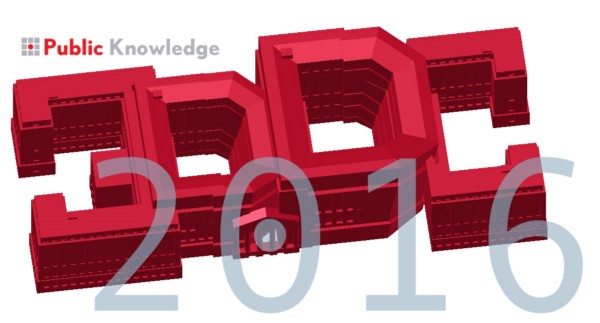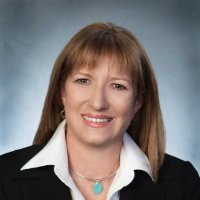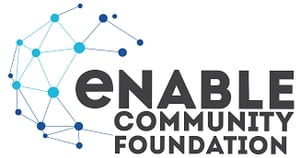By Courtney Duffy on April 11th, 2016
3D Printing’s Potential for Social Impact
Courtney Duffy, our Robert W. Deutsch Arts & Technology Policy Fellow, is spearheading 3D/DC, the fifth annual 3D printing policy event sponsored by our friends at Public Knowledge which is scheduled to take place on Capitol Hill on April 14. For additional event details and to RSVP, click here. You can find the other posts in our 3D/DC 2016 blog series here, here,here, and here.

Enable Community Foundation (ECF), an internet-based organization, is reimagining what it means to “do good” in the digital age. ECF and its affiliate project, Enable International Haiti (EIH) will be joining Tikkun Olam Makers (TOM) for a lunchtime panel at this year’s 3D DC on Thursday, April 14. You should come.
I sat down with Grace Mastalli, ECF’s Chief Executive Officer, who explains how e-NABLE has harnessed the internet and social media to foster creative humanitarian initiatives and advocacy.

What is e-NABLE?
It all started with a puppet maker and a carpenter. The e-NABLE community began in 2013. While watching a viral video about Robohand, Jon Schull, President of ECF, posted a map online suggesting a means to coordinate requests for hand devices with individuals interested in printing them, on a voluntary basis and providing them, free of charge. Soon thousands had posted on the map and formed a Google+ community. Its 8000+ members — students, teachers, medical professionals, artists, engineers, designers, and diverse others among them — have delivered thousands of hand and arm devices to children and adults in more than 40 countries.

What is the Enable Community Foundation?
ECF developed as a response to the community’s rapid growth. Iterating quickly, e-NABLE moved into designing and improving 3D-printed assistive devices and building systems to maximize distribution capabilities. To support these activities, in late 2014, ECF was established as a tax-exempt 501(c)(3) nonprofit organization.
ECF addresses community-related needs including: curating members’ designs; testing and reviewing different devices to meet a myriad of different currently unmet needs; prototyping and striving to develop scalable systems; and developing new partnerships and best practices to respond to a tsunami of requests for assistance.
What and where are you pilot testing?
Central to our learning among ECF’s efforts and partners is Enable International Haiti. Developing countries, especially areas torn by war and natural disaster, have a large need for upper-limb prosthetics and Haiti is no exception. EIH is working to introduce open-source 3D-printed upper-limb prosthetic options by providing training in conjunction with Haitian health service providers and by considering design adaptations and cosmetic concerns specially suited to local demographics. The value of EIH as a pilot is already being realized by ECF as it is using EIH’s early findings to re-direct research and design efforts for use in comparable settings.
We are also exploring work with Tikkun Olam Markers (TOM). Tikkun Olam is named for the ancient rabbinic teaching to “repair the world” Like ECF, TOM works on assistive technology, bringing together “makers and need knowers,” like developers, designers, and hobbyists at make-a-thons. Addressing specific challenges facing people with disabilities, these events often produce solutions in the form of ingenious hardware and software prototypes. TOM make-a-thons have taken place in Israel, Brazil, and Canada with Vietnam the next stop.
Nonprofits like ECF and TOM share a dynamic and challenging environment with many trailblazing for-profit businesses using advanced manufacturing technologies, such as 3D printers and open collaboration. It’s an exciting place to be.
What brought you personally to ECF and the open community/open source movement?
I came to help achieve our founders’ vision of global digital humanitarianism. I have always appreciated the problem-solving value of structured crowdsourcing — like ECF’s design challenges — and open collaboration. As a policy attorney interested in the intersection of law and technology, health care and social justice, civil rights and the impact of disabilities on quality of life, ECF literally called to me from the first social media post I saw (and re-posted) about superhero hands. With legal and policy issues real or imagined increasingly raised as obstacles to doing good, I initially joined the community to focus on issues like Food and Drug Administration regulations and post-Affordable Care Act disruption of care delivery and the medical device industry. My platform expanded from there.
Why is Enable Community Foundation taking part in 3D/DC?
3D/DC helps policymakers to understand the new technologically-driven world that we are both a part of and helping to create. This event is key to helping all that share this space. ECF and Public Knowledge share similar approaches and goals. Just as ECF unites a diverse membership, helping them iterate and innovate superhero hands for youth, cosmetically appropriate arms for Haitians, or 3D curriculum for schools, 3D/DC galvanizes and enriches other wide-ranging communities of interest, providing content and context on everything from patent reform issues to how medical malpractice intersects with 3D printing and additive manufacturing.
What are the challenges you see for open communities?
Open communities are defined by open licenses and a decentralized, participant-driven method of working called “commons-based peer production.” Anyone can download and print the designs released by members of this community under various open licenses. ECF initially thought it would be easy to help provide designers and makers with open source licenses to protect the openness of their work. But, it is in fact a very complicated, new and changing area of law and policy fueled by powerful tools for re-engineering products and tinkering with source code. Sometimes, one must be able to trademark in order to protect the open nature of intellectual property. It turns out, for example, that no variation of “enable” can be trademarked. So, ironically, we may be rebranding to preserve the kind of access that is central to our mission and vision.
There’s still time to RSVP for 3D/DC 2016: www.publicknowledge.org/3ddc! Be sure to tweet about this year’s event using #3DDC2016.
